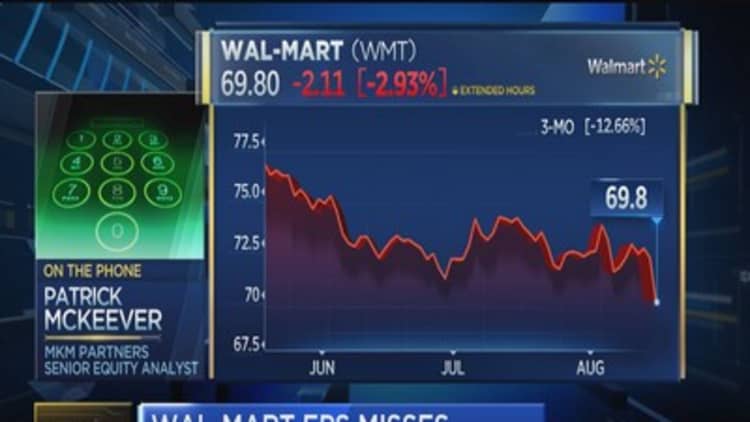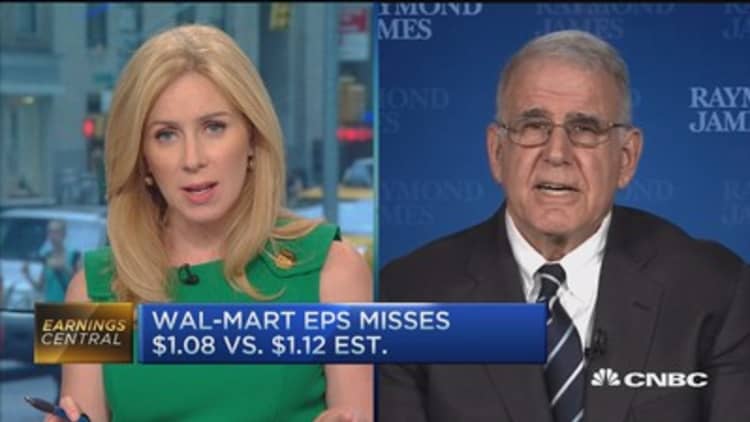


Wal-Mart Stores reported quarterly earnings that fell short of analysts' expectations on Tuesday, and the retailer cut its full-year guidance.
After the announcement, the company's shares fell in premarket trading. (Get the latest quote here.)
The company lowered its full-year outlook to a range of $4.40 to $4.70 a share, from a previous range of $4.70 to $5.05. The market consensus was for $4.77 per share.
Patrick McKeever, senior equity analyst at MKM Partners, said that was a pretty significant guidance revision for Wal-Mart.
"We're talking about $4.55 at the midpoint of the new range. The Street's at about $4.75, $4.76, so 20 cents less than the Street ... is a pretty big deal for a company like Wal-Mart," he told CNBC's "Squawk Box."
For the third quarter, Wal-Mart expects an earnings-per-share range of 93 cents to $1.05.
The company also said it now plans to open 160 to 170 of its smaller format stores in the full year to January, down from a previous plan for 180 to 200 stores.
The retailer said it has decided not to pursue some potential locations for the Neighborhood Markets format because they "would not provide the type of quality experience customers expect."
In its statement, the company posted earnings of $1.08 per share, down from $1.21 a share in the year-earlier period.
Revenue edged up to $120.2 billion from $120.13 billion a year ago.
Analysts expected earnings of $1.12 a share on $119.72 billion in revenue, according to a consensus estimate from Thomson Reuters.
Wal-Mart said its profits were being weighed down by a decision to increase the hours of store greeters and stocking positions, part of its push to improve customer service.
It also cited pressure on margins in the U.S. pharmacy business and higher-than-expected "shrink," a term in the retail industry that generally refers to losses due to theft in the store.
Despite those setbacks, there was some positive news in the report, McKeever said. Traffic was up 1.3 percent sequentially from the first quarter, putting Wal-Mart at Q4 2014 levels, which he called "solid."
The sales trend is also getting better, following Wal-Mart's decision to raise wages, he said.
The company said sales at stores open more than a year increased 1.5 percent in the 13 weeks ended on July 31 from a year earlier. Analysts polled by research firm Consensus Metrix had expected a 1 percent rise.
Including a gas and foreign exchange impact, Wal-Mart Stores' same-store sales were forecast to rise 0.6 percent, according to Consensus Metrix.
Year to date, Wal-Mart stock has underperformed shares of rival Target, falling 16 percent compared with Target's 4 percent rise. The stock is down nearly 3 percent in the last 12 months.
—CNBC's Tom DiChristopher and Reuters contributed to this report.


